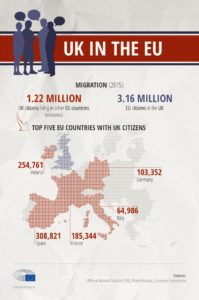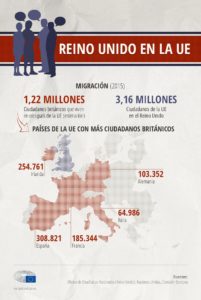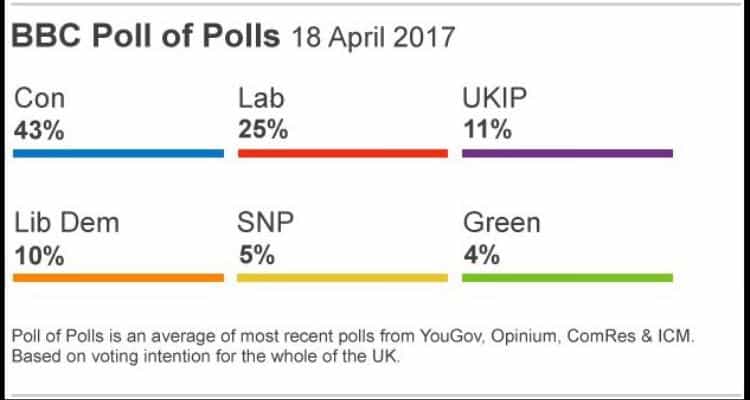
Brexit – Brits Abroad and EU Citizens in Britain
Resolution to Protect Citizens
In brief, Brexit talks pivot around sequencing which creates a barrier to any bilateral agreements before withdrawal and the key principles identified in the withdrawal agreement.
All sides agree that protection of individuals is crucial and that many EU Citizens live in Britain. Plus, many Britons live in other EU countries. This is reassuring yet very little real progress has been made. In the absence of real progress, life continues as normal.
April 5th 2017 a resolution was passed. This was updated a year later. But, in truth, it is more of the same.
Below is an abbreviated summary.
Key Principles – With Which Negotiations Will Advance
An overwhelming majority of the house (516 votes in favour, 133 against, with 50 abstentions) adopted a resolution officially laying down the European Parliament’s key principles and conditions for its approval of the UK’s withdrawal agreement. Any such agreement at the end of UK-EU negotiations will need to win the approval of the European Parliament.
European Parliament resolution of 5 April 2017 on negotiations with the United Kingdom following its notification that it intends to withdraw from the European Union
Sequencing of the negotiations
- Notes that an agreement on a future relationship between the European Union and the United Kingdom as a third country can only be concluded once the United Kingdom has withdrawn from the European Union;
Withdrawal agreement
- States that the withdrawal agreement must be in conformity with the Treaties and the Charter of Fundamental Rights of the European Union, failing which it will not obtain the consent of the European Parliament;
- Is of the opinion that the withdrawal agreement should address the following elements:
| – | the legal status of EU-27 citizens living or having lived in the United Kingdom and of United Kingdom citizens living or having lived in other Member States, as well as other provisions concerning their rights; | |
| – | the settlement of financial obligations between the United Kingdom and the European Union; | |
| – | the European Union’s external border; | |
| – | the clarification of the status of the United Kingdom’s international commitments undertaken as a Member State of the European Union, given that the European Union of 27 Member States will be the legal successor to the European Union of 28 Member States; | |
| – | legal certainty for legal entities, including companies; | |
| – | the designation of the Court of Justice of the European Union as the competent authority for the interpretation and enforcement of the withdrawal agreement; |
- Requires the fair treatment of EU-27 citizens living or having lived in the United Kingdom and of United Kingdom citizens living or having lived in the EU-27 and is of the opinion that their respective rights and interests must be given full priority in the negotiations; demands, therefore, that the status and rights of EU-27 citizens residing in the United Kingdom and of United Kingdom citizens residing in the EU-27 be subject to the principles of reciprocity, equity, symmetry and non-discrimination, and demands moreover the protection of the integrity of Union law, including the Charter of Fundamental Rights, and its enforcement framework; stresses that any degradation of the rights linked to freedom of movement, including discrimination between EU citizens in their access to residency rights, before the date of withdrawal from the European Union by the United Kingdom would be contrary to Union law;
- Stresses that a single financial settlement with the United Kingdom on the basis of the European Union’s annual accounts as audited by the European Court of Auditors must include all its legal liabilities arising from outstanding commitments as well as making provision for off-balance sheet items, contingent liabilities and other financial costs arising directly as a result of the United Kingdom’s withdrawal;
- Recognises that the unique position of and the special circumstances confronting the island of Ireland must be addressed in the withdrawal agreement; urges that all means and measures consistent with European Union law and the 1998 Good Friday Agreement be used to mitigate the effects of the United Kingdom’s withdrawal on the border between Ireland and Northern Ireland; insists in that context on the absolute need to ensure continuity and stability of the Northern Ireland peace process and to do everything possible to avoid a hardening of the border.
Restatement of Key Principles

The Resolution of 9th March 2018 reiterates the importance of securing equal and fair treatment for EU citizens living in the UK and British citizens living in the EU and restates points above.
Everything else to date is mere puff, but with all parties committed to Natural Justice and Fairness there is every expectation that properties and ability to reside in other EU countries will remain protected.
Tracy Thomson
























